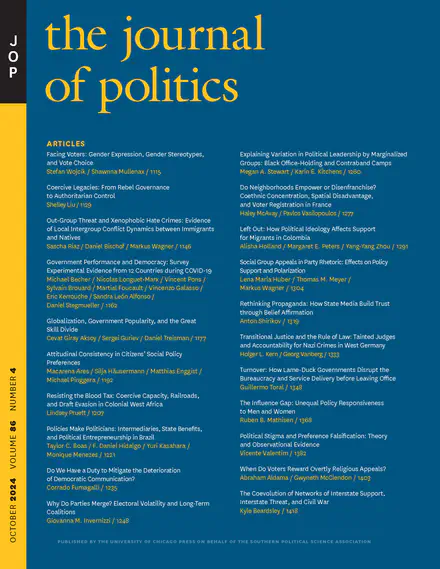Careful Commitments: Democratic States and Alliance Design

Abstract
Evidence suggests that leaders of democratic states experience high costs from violating past commitments. We argue that because democratic leaders foresee the costs of violation, they are careful to design agreements they expect to have a high probability of fulfilling. This may cause democratic leaders to prefer flexible or limited commitments. We evaluate our argument by analyzing the design of alliance treaties signed by countries of the world between 1815 and 2003. We find that alliances formed among democratic states are more likely to include obligations for future consultation rather than precommitting leaders to active conflict, and defense pacts formed among democratic states are more likely to specify limits to the conditions under which member states must join their partners in conflict. This research suggests that separating screening effects and constraining effects of international agreements is even more difficult than previously believed. States with the greatest likelihood of being constrained are more carefully screened.